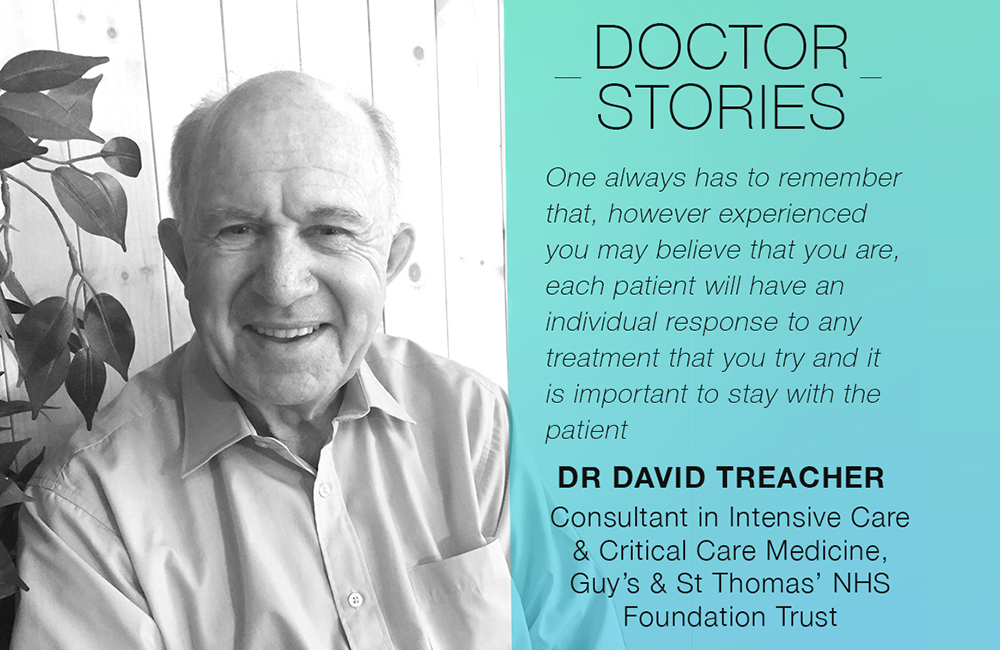Meet Dr David Treacher, one of the medical specialists who contributes to the knowledge within DemDx.
Why did you choose medicine as a career?
My father was a GP which gave me, on occasions and when appropriate, the opportunity to go and see patients with him. I was around 15 or 16 years old and it was fascinating. However it would most probably not be allowed today! My father was never driven by money and wanted me to follow a career that I enjoyed rather than one in which I was simply earning money. Apart from becoming a marine biologist – I had always been fascinated by the sea after watching programmes by Jacques Cousteau – or possibly working in the city, I was attracted to medicine since it offered the opportunity to work with and to help people while also having a strong scientific basis.
So I went up to Oxford to read medicine but I was still not completely decided on following a career in medicine and the possibility of doing something else still existed. In the event I was fortunate enough to have an inspirational physiology tutor which convinced me that medicine was the right career for me as it is based on a sound knowledge of human physiology. I then completed my medical training at St Thomas’ Hospital in London where I started to have contact with patients and other clinicians, which convinced me that medicine was for me.
How did you come about selecting your speciality?
By the age of 30 I was at a point of having to specialise and was fortunate enough to have a wide range of options including a research post in Oxford, a general medicine position or work in respiratory medicine. Just when I was about to decide I was contacted by one of my great mentors, Prof Ronald Bradley, with whom I had worked in Intensive Care during one of my house jobs. He invited me to take up a post at St Thomas as a senior registrar in Intensive Care. It was real serendipitous moment. Had he contacted me a few weeks later, I would have already committed to one of the other options but in hindsight a career in intensive care was the perfect choice for me.
What do you enjoy about it?
It brings together all your knowledge of anatomy, physiology and pathology and, as an intensivist, one is in the privileged position of assessing the patient in this way & then attempting to correct the problem. However one always has to remember that, however experienced you may believe that you are, each patient will have an individual response to any treatment that you try and it is important to stay with the patient to assess their particular response and to alter/change the treatment as necessary. Above and beyond the intellectual challenges there is also the very human side of dealing with very unwell patients and their families and it is undoubtedly a very privileged position when you are dealing with patients who are potentially at the end of their lives.
What is a memorable moment in your career?
A case that I remember well was of an elderly lady with severe pulmonary hypertension and right heart failure who was again seriously ill and deemed unlikely to survive. I was a senior registrar at the time and I had inserted a pulmonary artery catheter so that we could assess the situation and monitor the effects of treatment. However after inflating the balloon on the PA catheter in an attempt to measure the left sided heart pressures, I left the balloon blown up rather longer than I should have and severe pulmonary haemorrhage ensued from which the patient died.
Naturally I felt very responsible but after explaining to the family how this had happened they were very understanding and recognised that the patient could not have survived without any intervention and we parted on good terms. The lesson that I learnt from this was that as a doctor in general and in intensive care in particular you are always trying to help the patient with various interventions and drugs but all these things can also potentially do harm





